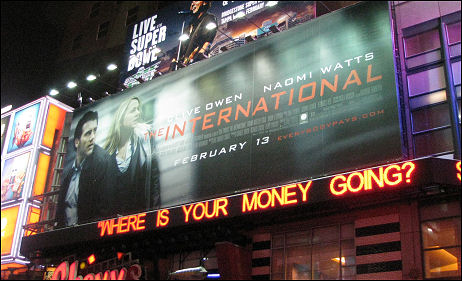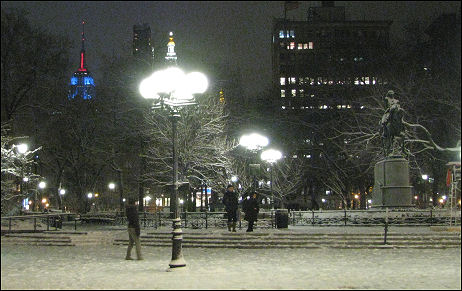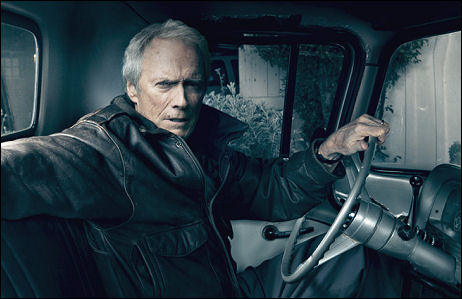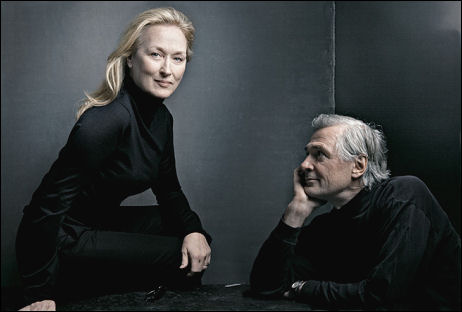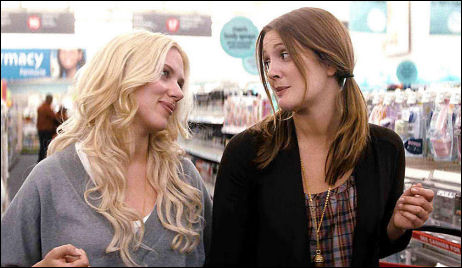Some have the impression that I’ve turned into some kind of Benjamin Button hater. I haven’t. I’ve always respected David Fincher‘s film as far as it goes. It just never got me that much. I’ve more or less been a half-and-halfer from the moment I first saw it. But I love the way that New Yorker critic David Denby tears it apart. Denby’s wrath is so strong and urgent that he’s just posted an Oscar summary piece in which he takes it down again.
“Brad Pitt‘s modesty when he comes into his own handsome flesh is becoming, yet his eyes are unforgivably blank. Where is Benjamin’s exhilaration at shedding his infirmities? He tells us very little of what we want to know, which is how he feels about what has happened to him. Perhaps if you’re born old with an infant’s brain and get younger, you never know much of anything (including the ardencies and the anxieties of youth), but that kind of mental void doesn’t yield much of a protagonist.
“Benjamin leaves his loving girlfriend (Cate Blanchett) and travels all over the world and announces, ‘It’s never too late, or in my case too early, to be whoever you want to be.’ Someone at Paramount Pictures must imagine that this sentiment is a gift to the world, because a full-page ad that the studio took out in the Times, on Inauguration Day, proclaims it as such. (The quote continues, ‘I hope you live a life you’re proud of, and if not, I hope you have the courage to start all over again.’)
“Courage is definitely a good thing to have; lots of money (which Benjamin inherits) helps, too. It seems that Roth has gone back to the fatuous simplicities of his screenplay for Forrest Gump, with its dopey hero who conquers the world. Whatever else it might be, Benjamin Button is a celebration of ignorance; it could be a wan kiss goodbye to the Bush era.”
Denby isn’t very appreciate of Slumdog Millionaire either, now that I’ve read the piece again. Here’s his final graph:
“Almost every movie, of course, is a fantasy, or a fable, or a fairy tale of one kind or another. In a great movie, though, narrative and technological magic combine to produce heightened intimations of the real, and that ecstatic merging of magic and reality is what imprints the movie on our emotional memory. Besides the children, what I will remember of Slumdog Millionaire is a disorderly exploitation of disorder, a kind of visual salad of glowing rotten fruit, constantly tossed. The envelope, please — I guess.”

